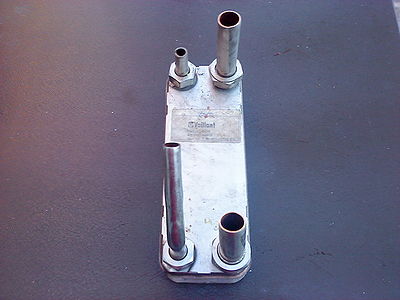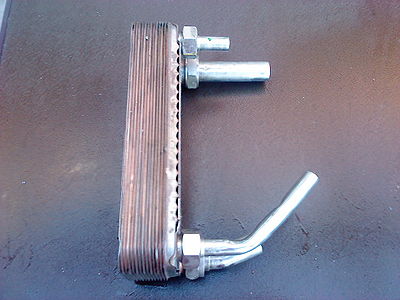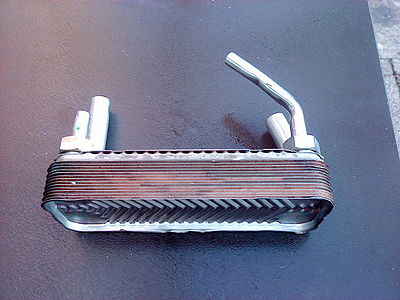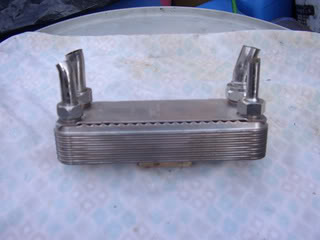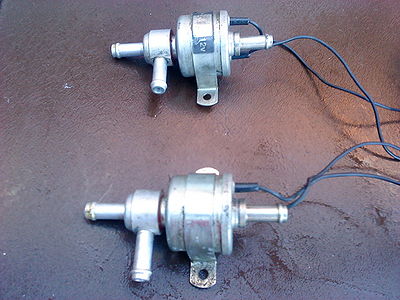Difference between revisions of "Heat exchangers and solenoid valves"
| Line 14: | Line 14: | ||
File:Heat3.JPG|Easily plumbed into your car heater system using existing tails or by fitting 1/2 inch or 3/4 inch hosebarbs respectivly.These are readily available from oilbits in sizes to match your heater hoses ID. | File:Heat3.JPG|Easily plumbed into your car heater system using existing tails or by fitting 1/2 inch or 3/4 inch hosebarbs respectivly.These are readily available from oilbits in sizes to match your heater hoses ID. | ||
| + | |||
| + | File:Fphe.jpg|Another FPHE | ||
File:Valve12v.JPG|12 volt valves. | File:Valve12v.JPG|12 volt valves. | ||
Revision as of 14:33, 8 December 2010
These are the essential parts required when building a twin-tank system.
The vehicle is started on mineral Diesel, and then the valves switch over to an auxiliary veg tank when the engine reaches full temperature - the heat exchanger is used to heat the vegetable oil before it reaches the injection pump, using engine coolant transfering heat across the plates of the heat exchanger.
Before stopping the engine at the end of a journey, the system must be "Flushed or Purged" with mineral Diesel, making it safe to re-start ie: in the morning from a cold start few hours later. Short stops eg: 30 mins etc 99% of the time shouldnt need to purge/flush down, as the engine will still be upto optimum temperature.
- Click pictures to enlarge
Rotary-Motion 21:50, 5 December 2010 (UTC)
